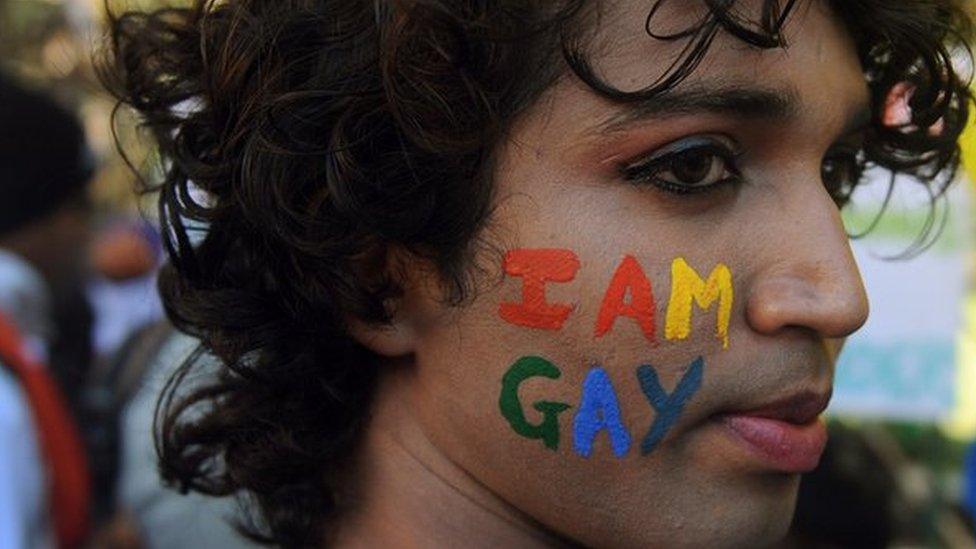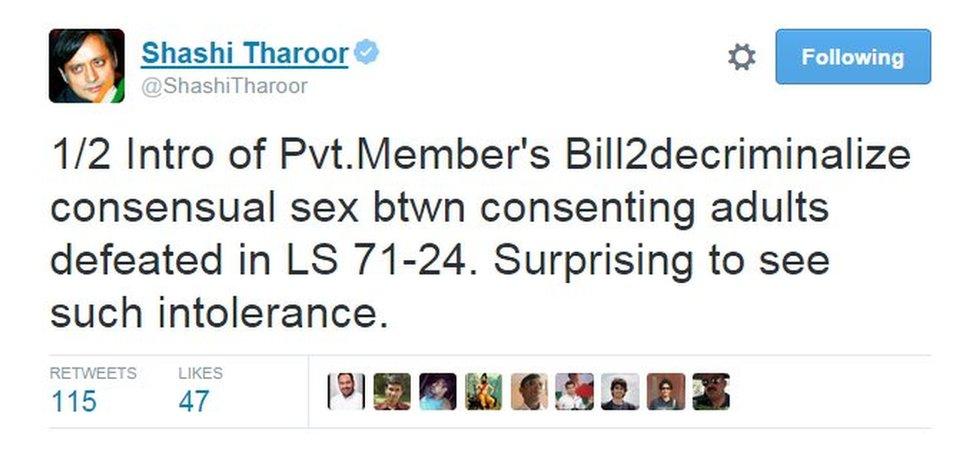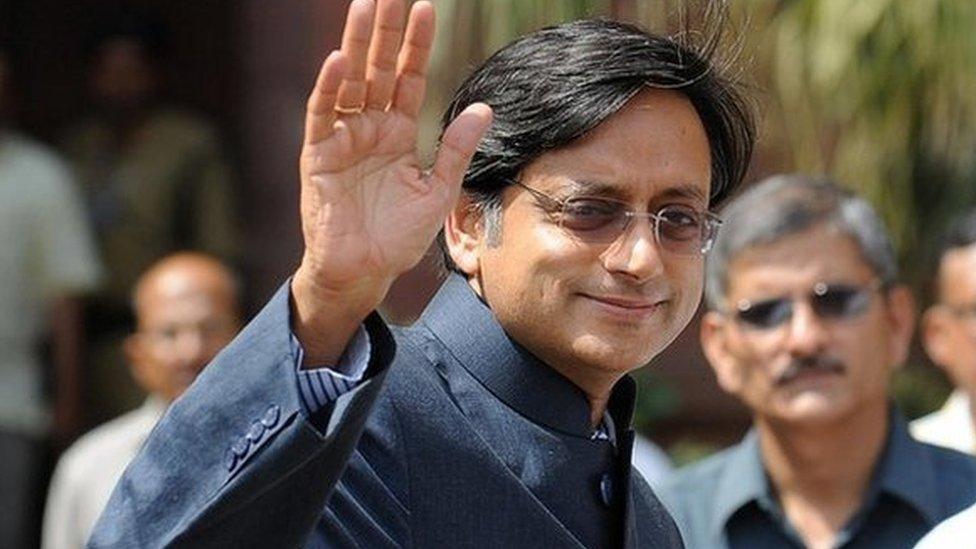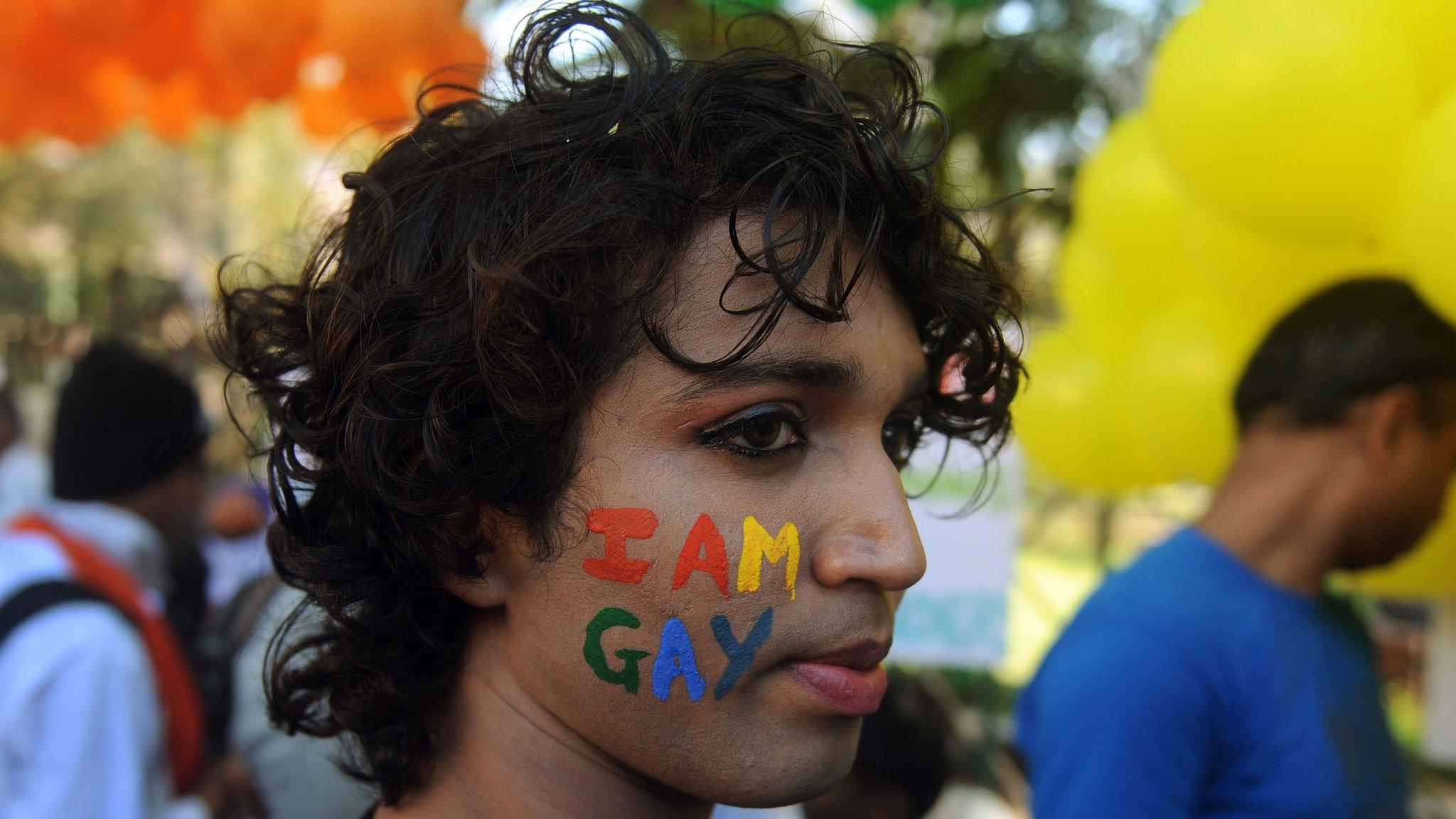Shashi Tharoor: India MP's bill to decriminalise gay sex rejected
- Published

Many people in India still regard same-sex relationships as illegitimate
An Indian MP's bid to introduce a private member's bill in the parliament to decriminalise gay sex has failed.
Shashi Tharoor wanted to amend Section 377 of the Indian Penal Code, saying it "violates the fundamental rights" of the homosexual population.
According to the 153-year-old colonial-era law, a same-sex relationship is an "unnatural offence" and punishable by a 10-year jail term.
Activists say police authorities often misuse the law to harass homosexuals.
The MP tweeted that he "will try again in the future" to amend the law.

Mr Tharoor's bill was defeated in Lok Sabha (LS), lower house of parliament
India's treatment of homosexuals has been under the spotlight in recent years.
In a landmark ruling in 2009, the Delhi high court had decriminalised gay sex, describing Section 377 as discriminatory.

Shashi Tharoor is a high-profile, two-term MP from Kerala
The Indian Supreme Court reversed the order in 2013, causing global outrage with many describing it as "disgraceful".
Gay rights activists have been demanding Indian MPs to amend the law in the parliament, but successive governments have failed to take up the issue.
Mr Tharoor wrote on the Quint website, external that "it is time to bring the Indian Penal Code into the 21st century".
"Section 377 of the Indian Penal Code was enacted in 1860, and criminalises 'carnal intercourse against the order of nature' - a term so archaic that it would invite derision in most modern societies," he wrote.
In deeply conservative India, homosexuality is a taboo and many people still regard same-sex relationships as illegitimate.
- Published20 December 2013
- Published11 December 2013
- Published11 December 2013
